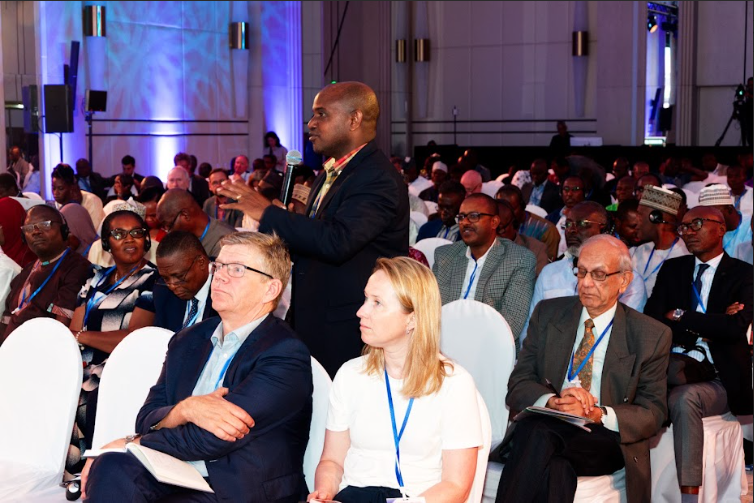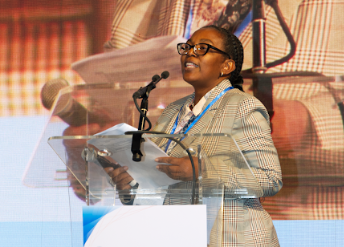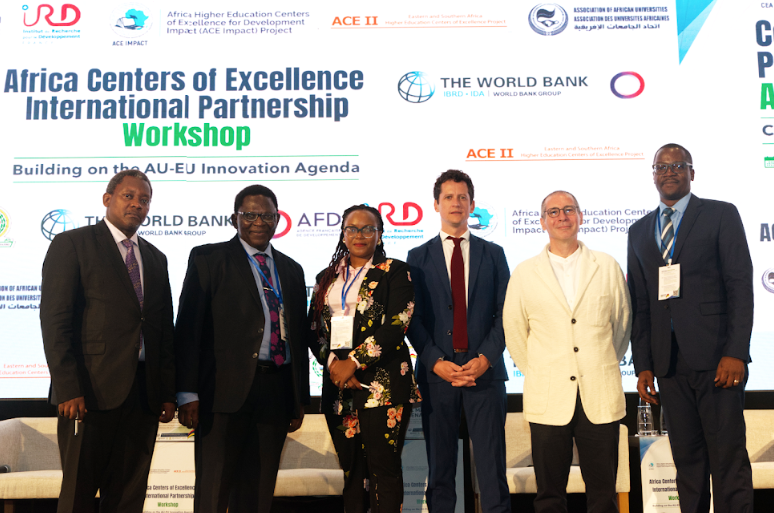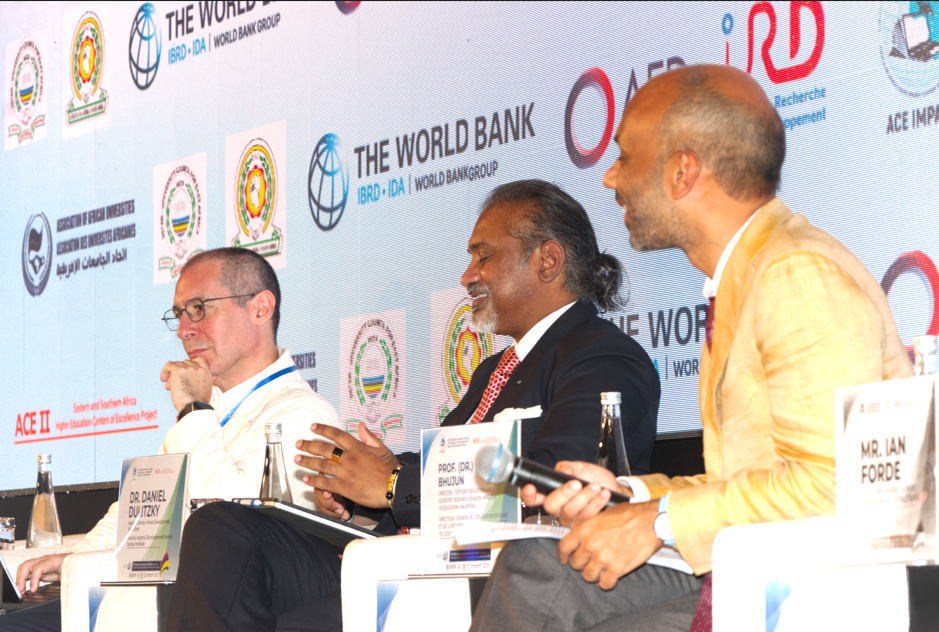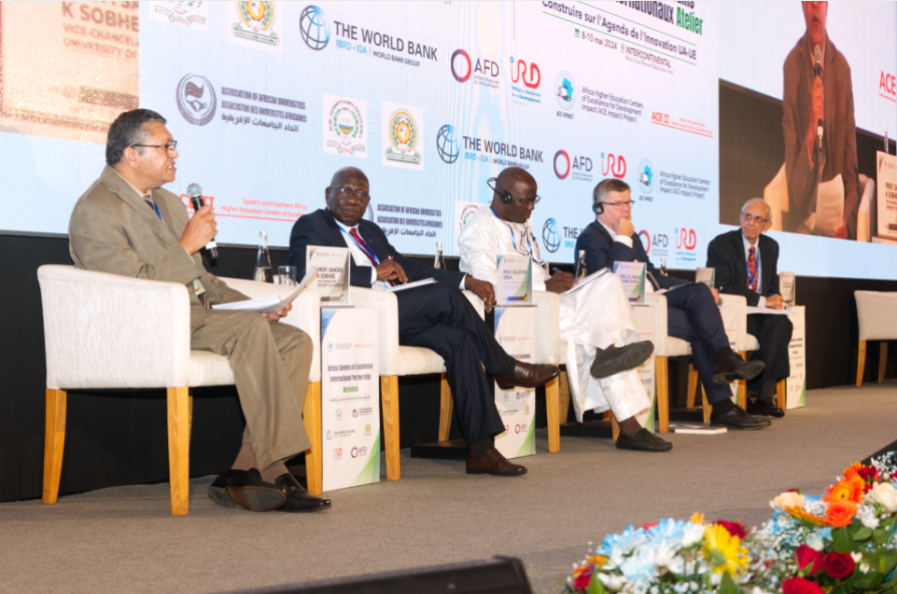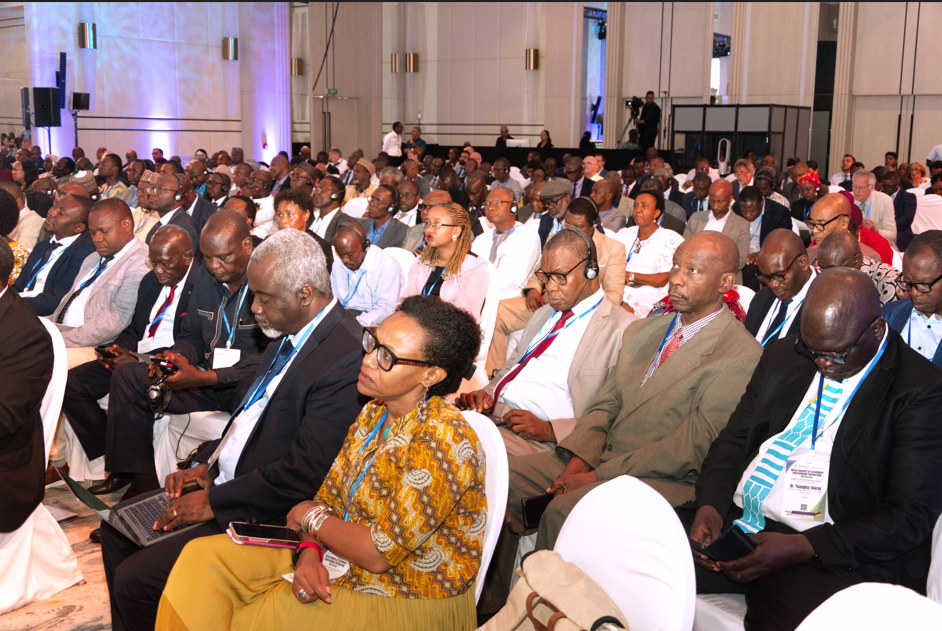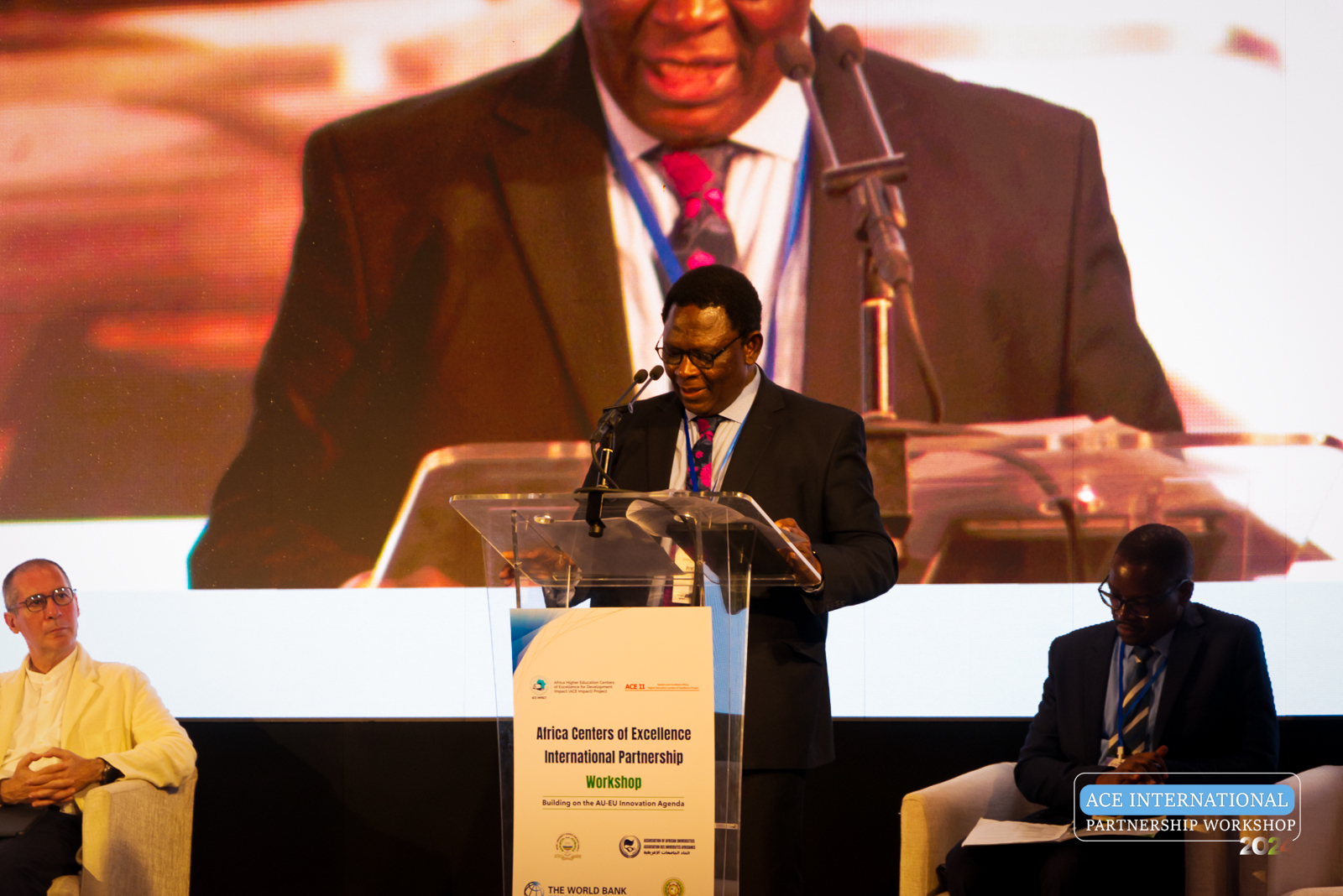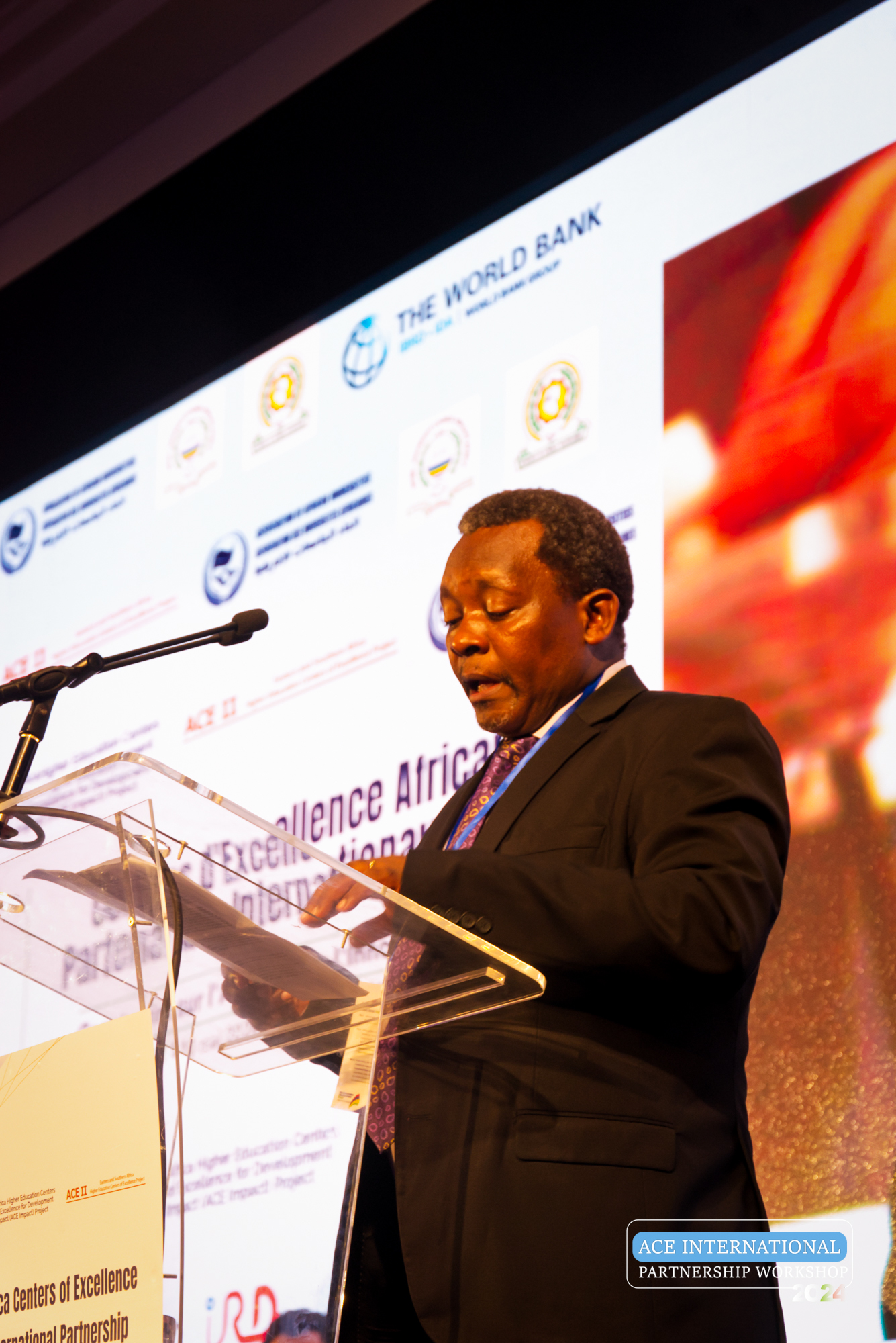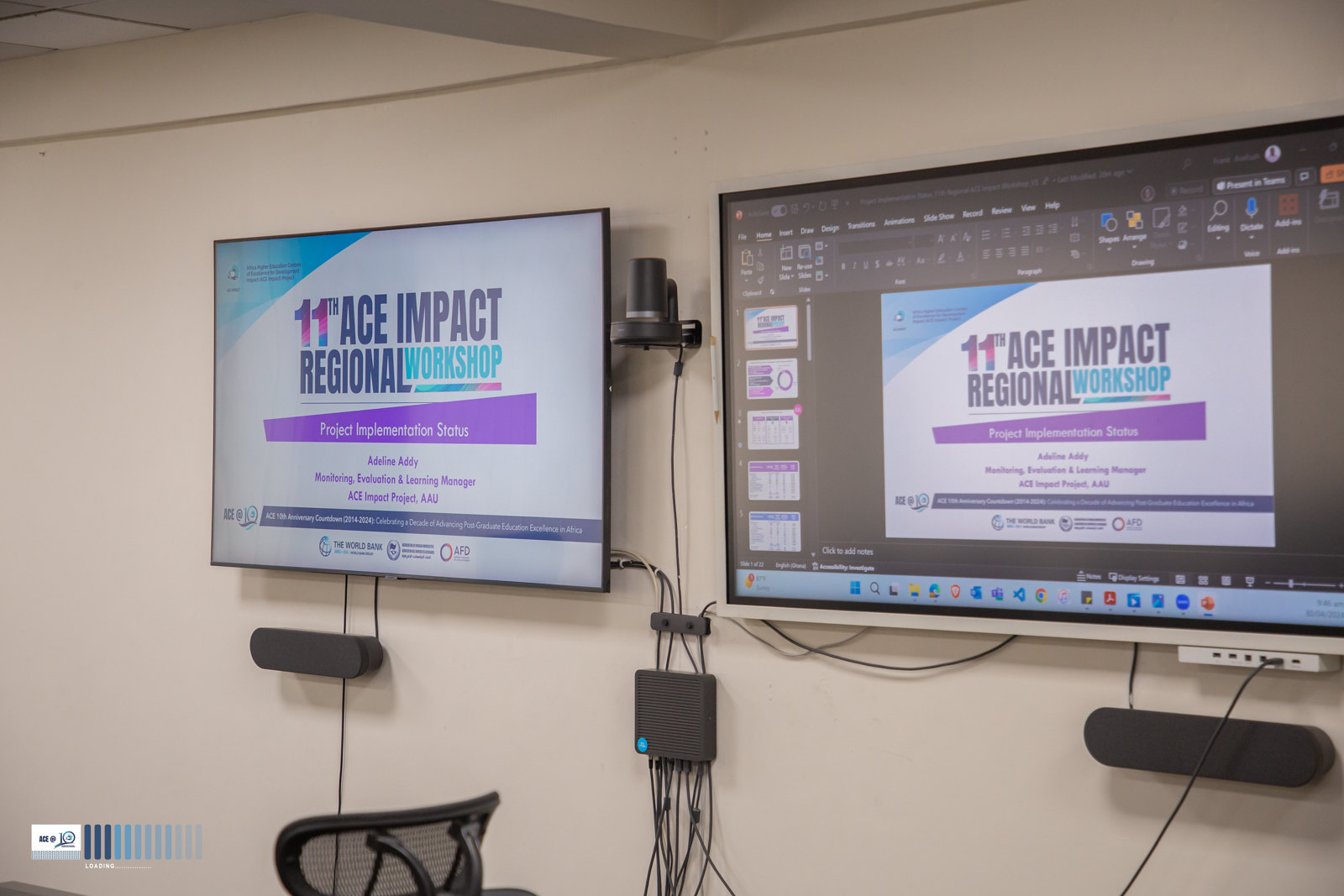The Regional Facilitating Units for the Africa Higher Education Centres of Excellence (ACE) projects – the Association of African Universities (AAU), and the Inter-University Council for East Africa (IUCEA)—in collaboration with the World Bank, the French Development Agency (AFD), and the French National Research Institute for Sustainable Development (IRD), convened over 400 higher education stakeholders for the maiden ACE International Partnership Workshop. This high-level event was hosted at the Intercontinental Mauritius Resort, Balaclava Fort in Mauritius, from May 8-10, 2024 and featured prominent government officials from Europe and Africa, representatives from the private sector, university leaders (Vice Chancellors), ACE academics from host institutions, and experts from policy think tanks and development partner organisations. Since 2014, the ACE Program has provided support to over 80 centres within 50 universities across 20 African nations. Its aim is to cultivate and provide top-tier postgraduate education while fostering applied research in crucial sectors such as health, agriculture, ICT, water, transport, energy, education, sustainable mining, environment, and engineering. These ACEs have been pivotal in tackling a range of challenges, including Ebola, Covid-19, sickle cell anemia, maternal and child health-related complications, digital technologies related challenges, food insecurity, and climate crisis.
The key objective of the Africa Centres of Excellence International Partnerships Workshop was to leverage the collaborative opportunities outlined in the Africa Union-European Union (AU-EU) Innovation Agenda, to foster engagement and knowledge exchange between Africa, Europe, and other continents.
Overview of the Panel Discussion
The plenary session four (IV) was a panel discussion held with the objective of having an engaging discussion on current research, innovations and partnerships already occurring within and outside of Africa in the STEM and Education sectors. The moderator, Mrs. Jane M. Chinkusu, Director of Science and Technology at the Ministry of Technology and Science, Zambia, introduced the following panelists:
- Prof. Maïssa Mbaye, African Centre of Excellence in Mathematics and ICT (CEA MITIC), Senegal
- Prof. Raghava R. Kommalapati, National Science Foundation (NSF) CREST Centre for Energy & Environmental Sustainability, United States
- Dr. Luis Lucas, Centre of Studies in Oil and Gas Engineering and Technology (CS-OGET), Mozambique
- Prof. Grace Jokthan, ACE on Technology Enhanced Learning (ACETEL), Nigeria
- Dr. Andrea Ricci, ISINNOVA Institute on Research, Innovation, and Sustainability, Italy (participated virtually)
- Dr. Benjamin Yao, ACE on Valorization of Waste Products with High Value Added (VALOPRO), Côte d’Ivoire.
Reiterating the relevance of the discussion, Mrs. Chinkusu gave each panelist the platform to share with participants the innovations taking place in their various institutions and centres.
Key Innovations in STEM & Education Research
African Centre of Excellence in Mathematics and ICT, Senegal
Prof. Mbaye unveiled the groundbreaking innovations and research initiatives implemented by the African Centre of Excellence in Mathematics and ICT (CEA MITIC) under his leadership. These initiatives span diverse domains including health, environment, agriculture, applied mathematics, and ICT. In the area of health, CEA-MITIC spearheaded the development of a cutting-edge health information system for sickle cell disease, revolutionizing the diagnosis process and enabling swift data collection for various ailments. This pioneering system has been deployed across multiple healthcare facilities, strengthening the efficiency of healthcare practitioners.
Additionally, CEA-MITIC delved into the usage of AI for detecting sickle cell disease in newborns, epitomized by the deep learning-based classification of isoelectric focusing images for newborn screening. Shifting focus to environmental concerns, the centre engineered an intelligent, distributed platform for assessing air pollution, leveraging fixed and mobile data collection mechanisms to monitor and mitigate pollution stemming from household waste. Additionally, CEA MITIC’s innovative web and mobile application, powered by Artificial Intelligence, aids in monitoring marine biodiversity by accurately counting freshwater birds.
A standout project, the Deep4Monitoring Project, is an indication of CEA MITIC’s commitment to cutting-edge technology. This multi-model AI/ML (artificial intelligence / machine learning) platform serves as a robust decision support tool, addressing critical issues such as waste management, flood mitigation, fire prevention, and sustainable land use planning. Prof. Mbaye’s exposition emphasized CEA MITIC’s role as a hub for ICT and AI innovations, transcending traditional academic boundaries.
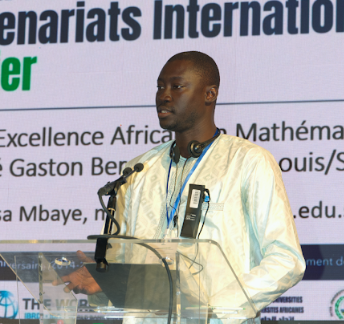
NSF CREST Centre for Energy & Environmental Sustainability, USA
Prof. Kommalapati’s presentation, focused on the accomplishments and innovations emerging from the National Science Foundation (NSF) Centre for Energy and Environmental Sustainability (CEES). He provided an overview of the centre’s evolution, highlighting its initial emphasis on teaching until the early 2000s. Established in October 2010 with an original funding of $5M from NSF, the centre received an additional $5M in 2019, extending its funding commitment to 2025.
The core vision of CEES is to cultivate a nationally recognized, multidisciplinary, and self-sustaining community centred around education and research. This vision encompasses leveraging university research infrastructure, fostering productivity, and institutionalizing key research areas. Notably, CEES distinguishes itself through its integrated approach, incorporating research, outreach, and education components. Key areas of focus include collaborative research, partnerships, student enrichment programmes, and community engagement initiatives.
The centre’s achievements are substantial, with its funding pool expanding to $20M, including contributions from entities such as the National Science Foundation, NASA’s Department of Education, and others. Noteworthy milestones include support for 12 post-doctoral candidates, with 8 transitioning to permanent positions. Additionally, the centre researchers have contributed significantly to scholarly discourse, with publications including one book and 197 articles spanning journal articles, book chapters, and peer-reviewed conference proceedings/extended abstracts. Also, 39 Master of Science theses have been completed, alongside over 250 presentations at various regional, national, and international conferences. In recognition of its accomplishments, CEES achieved the prestigious Carnegie R2 classification in 2021.
Mrs. Chinkusu expressed her appreciation to the panelists and all participating centres for their remarkable innovative projects. She emphasized the importance of ongoing collaborations and then engaged Dr. Lucas from the centre of Studies in Oil and Gas Engineering and Technology (CS-OGET) in Mozambique.
Centre of Studies in Oil and Gas Engineering and Technology, Mozambique
Dr. Lucas, in turn, conveyed gratitude for the positive impact of the ACE Project on institutions in Mozambique, particularly highlighting CS-OGET’s advancement. He discussed the transformation of Universidade Eduardo Mondlade into a research-driven institution and detailed the centre’s collaborations with the University of Dar es Salaam in Tanzania and Makerere University in Uganda on nanotechnology applications in drilling processes.
Among CS-OGET’s notable achievements are upstream and mainstream studies focusing on process safety, control, and optimization. The centre has also ventured into geological studies for oil and gas potential assessment, reserves determination, pay zone identification, and production optimization, including carbon dioxide capture and storage initiatives. Additionally, their exploration of alternative fuels, such as biofuels, and their blending with fossil fuels as part of energy transition studies, represents another significant innovation. Notably, the centre also utilizes cashew nuts to produce environmentally friendly biodegradable lubricants. Dr. Lucas concluded by acknowledging the multitude of innovations while recognizing that similar advancements have also been made by other centres.
Africa Centre of Excellence on Technology Enhanced Learning, Nigeria
Prof. Grace Jokthan highlighted several innovations from the Africa Centre of Excellence on Technology Enhanced Learning (ACETEL) during her comprehensive presentation on the theme of “Empowering Digital Education in Africa.” ACETEL primarily focuses on leveraging technology within the education sector. Previously, the National Open University of Nigeria (NOUN) stood as the sole online open and distance learning institution, and ACETEL continues to be dedicated to enhancing infrastructure, capacity building, and sustainability in developing digital education experts.
ACETEL takes pride in training postgraduate students in Artificial Intelligence (AI) and cybersecurity, with one student currently excelling in Korea, which is a source of immense pride for the centre. Using digital technology, ACETEL has successfully trained over 4,000 participants in short courses and skill-based training programs with broad industry applications across the region.
In addressing the growing risks in the digital learning environment, ACETEL developed the eGenti Kids Monitoring system, allowing parents to monitor their children’s online activities in real-time. This system provides crucial insights into children’s online behavior, especially as schools increasingly transition to online platforms. Additionally, to support students with visual or health impairments, ACETEL created the Neighbor Health Specialists online application which connects students and healthcare providers in real-time, offering immediate medical attention and referrals to specialists when necessary.
ACETEL’s commitment to inclusive education is further demonstrated through the ACETEL Mobile Aid, designed to assist visually impaired learners in navigating campuses independently. Innovations like the Vision Link Mouse have revolutionized assessment processes, eliminating the need for additional assistance during exams. The centre also focuses on securing data-centric architecture for learning and utilizes virtual labs to enhance student participation.
Benefiting from IBM training opportunities, ACETEL engages in immersive STEM Virtual Labs for Remote Learners, a pilot study simulating practical sessions virtually. This initiative aims to transfer practical experiences into the digital realm, facilitating learning for students outside traditional physical environments.
ISINNOVA Institute on Research, Innovation, and Sustainability, Italy
Dr. Andrea Ricci also contributed to the discussion by addressing the relevance of his institution, ISINNOVA, in advancing the development of urban smart cities and highlighting other emerging innovations. He provided a brief history of ISINNOVA, noting its establishment in Rome in 1971 as an independent research institute focusing on research, training, awareness, and consultancy services. The institute collaborates with a diverse network of national and international experts.
Dr. Ricci elaborated on ISINNOVA’s transformation journey, emphasizing its focus on urban mobility and sustainable development. Through extensive horizon scanning exercises, ISINNOVA identified key transport drivers likely to shape future technological advancements in sustainable mobility. This foresight led to the development of scenarios influencing policy formulation in the short term.
One of ISINNOVA’s notable innovations, CIVITAS, aims to assist national and local governments in planning, designing, and implementing sustainable solutions to enhance urban mobility. Technology plays a pivotal role in these endeavors, significantly impacting people’s lives by facilitating sustainable and efficient urban transportation solutions.
African Centre of Excellence for the valorization of waste into high value-added products, Cote d’Ivoire
Prof. Yao began his presentation by highlighting the focus of the African Centre of Excellence for the valorization of waste into high value-added products (VALOPRO), on the circular economy, emphasizing their efforts to minimize waste. He mentioned that the centre engages in laboratory activities where students conduct research to identify prototypes, validate products, and develop marketing plans. Given that the country is the largest producer of cocoa, the centre conducts research on utilizing cocoa waste to create water filters.
Regarding partnerships, Prof. Yao mentioned collaborations with various industries and institutions, including IMPHB and other state institutions, to further their research goals. Additionally, the centre has academic partnerships for biotechnology research with institutions in Africa and Europe.
Partnership and Collaboration Strategies
Speaking on the strategies used to establish partnerships with companies in both the government and private sectors, Dr. Ricci explained that they seek out teams with similar interests and integrate compatible competencies at the technical knowledge level. They also incorporate social sciences and humanities to understand the impact of modern technology, leveraging their extensive network. Additionally, they collaborate with EU-funded institutions that share similar interests and ensure active participation in research projects through workshops, thereby building and engaging research networks.
Dr. Ricci further mentioned the development of an innovative tool to promote solutions that span technological and environmental aspects, drawing from successful experiments in various regions. This tool is being introduced to raise awareness and transform the sector it serves.
In response to the question regarding partnerships and future expansion, Prof. Grace elaborated on the current collaborations that bolster the centre’s progress and development. She classified these partnerships into various categories, including academic collaborations such as DSTN, consisting of 6 centres working together on research, resource mobilization, research dissemination, entrepreneurship training, and capacity building. ACETEL ensures that each PhD student has two academic supervisors and one from industry to foster collaboration between academia and industry for demand-driven research and purposeful studies. Prof. Grace Jokthan of ACETEL also mentioned collaborations with public sector agencies, particularly in ICT for education, and highlighted the centre’s collaboration with EFCC for cyber security research using their forensic laboratory. Prof. Jokthan emphasized the ongoing need for collaboration and engagement with relevant stakeholders to propel the centre’s activities forward.
Continuing the discussion, Prof. Luis highlighted the dynamic nature of collaborations in the oil and gas sector. For each of their master’s degree programs, they involve at least two major companies in designing the curricula to align with industry demands. These companies also support the implementation of these programs, with lectures including foreign experiences to enrich student learning. Internship opportunities provided by these companies offer students hands-on experience even before completing the program, aiding in research data collection, and designing solutions to identified problems.
Prof. Kommalapti contributed to the discussion by noting that when the NSF CEES centre was established, one of their primary goals was to ensure its sustainability even after the NSF funding ends. This drive led them to forge robust partnerships and networks within the university, persuading administrators of the importance of the centre’s continuity. Additionally, the centre boasts of a strong external advisory board comprising members from academia and industry. Leveraging this board, they have connected with numerous opportunities to secure additional funding and research support. The centre has also collaborated with other universities on joint proposals to secure funding. They also facilitate e-mentoring for students, enabling them to maintain close relationships with their mentors through virtual platforms, which enhances their prospects of securing jobs after graduation.
Prof. Mbaye highlighted the establishment of multidisciplinary partnerships as their initial focus at CEA MITIC. These partnerships involve industry stakeholders such as doctors and environmental specialists who directly address identified issues. He underscored the fact that partnership serves as a gateway to other collaborations, including those involving parks, forests, and governmental structures related to wildlife conservation, which align with their ongoing projects. They also engage in scientific partnerships, particularly with American universities, diversifying their collaborations. Additionally, their partnership with Stanford University has facilitated international exposure for their research results, aiding in North-South collaboration efforts.
Conclusion
As the session concluded, with the moderator giving an overview of the discussion and highlighting the relevance of partnerships, it was evident that the Africa Centres of Excellence (ACE) project, has made significant contributions to the development of the continent’s higher education sector. The international partnerships workshop served as a catalyst for meaningful dialogue, collaboration, and action. The insights shared by the panelists serve as guidelines for future endeavors, inspiring a shared vision of a prosperous and sustainable Africa driven by research, innovation, and inclusive partnerships.

